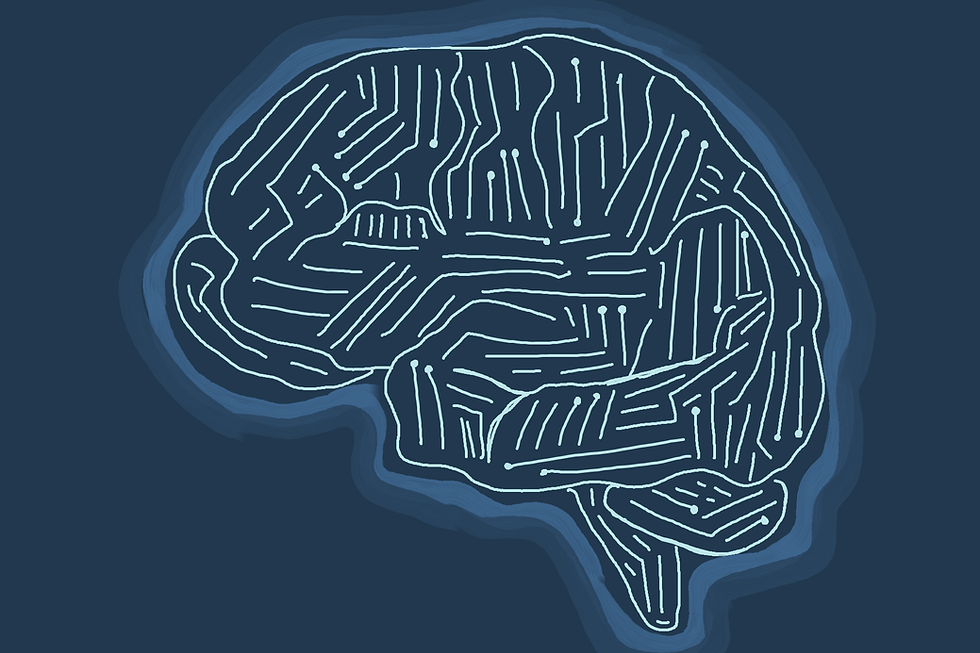The ABC Conjecture or, Why Do Mathematicians Seem to Like to Waste Their Time?
- The Natural Philosopher
- Dec 8, 2018
- 4 min read
By Joe Wills
My nomination for the best overlooked development actually started six years ago. In 2012, a Japanese mathematician named Shinichi Mochizuki claimed he’d solved a famous, decades old open problem in mathematics, known as the “abc conjecture”. Before we can even begin to unpack the motives and thoughts behind his 500 page proof, we first need a statement of the problem.
Like many famous unsolved problems in mathematics, the abc conjecture is deceptively simple. Take the equation a + b = c, where a, b and c do not share any factors -- a relation that is typically called “relatively prime”. An example: 1024 + 81 = 1105. If these numbers are decomposed into their prime factors, we get 210 + 34 = 51317. We can now see that they do not share any factors. The next step of the abc conjecture is to multiply all of the unique prime factors (i.e, not repeating the 2 ten times, or the 3 four times): 2351317=13,260. This is called the radical of abc. You’ll notice that 13,260 is larger than c, which in this case is 1,105. This tends to be the case -- the radical of abc tends to be larger than c. The conjecture takes the form radical(abc)k, where k is an exponent on the radical. The abc conjecture states that for the case where k = 1, there’s an infinite number of exceptions to radical(abc) > c, but for any case where k > 1, there are a finite number of exceptions.
In mathematics, there’s really two ways to prove or disprove a conjecture: either prove that it’s true for every single case, or that it’s false in one case. While that may work for the Four Color Map Theorem (The Four Color Map Theorem states that any map, real or imaginary, can be colored with only four colors, and no bordering countries will share a color), it would be impossible for mathematicians to test every single case for the abc conjecture, because every case is an infinite number of primes and every positive integer greater than 1. So Mochizuki invented his own sub-branch of mathematics, called “Inter-universal Teichmüller theory”, enumerated in his dense 2012 monograph that claimed to solve several famous conjectures in number theory, including the abc conjecture. Because of the size of this theory, its density, its reliance on hundreds of pages of his earlier work, and the fact that mathematicians are not superhuman, it took several years for a substantial number of people to understand it.
In 2018, Peter Scholze and Jakob Stix, both well known mathematicians (Scholze won the Fields Medal this year) went to Japan to attempt to resolve inconsistencies and perceived errors in parts of Mochizuki’s proof. They never came to an agreement, with Scholze and Stix claiming that the proof’s gap was “so severe” that it could not be rescued, and Mochizuki claiming that their misunderstanding came from their oversimplification of his proof. This has yet to be resolved; both sides have spent the better part of the year publishing short manifestos attempting to refute their opponents’ claims.
Mochizuki’s claims are yet to be verified by the wider mathematics community. Oddly, the struggle in accepting or denying his proof to the greater mathematical canon apparently became newsworthy. The story displays a major exercise in civility and passion: both sides act solely in the interest of advancing mathematics.
The quest to solve (or to verify the solution of) the abc conjecture is a fantastic modern mathematical odyssey, but one, like many of math’s misadventures, ultimately begs the question “why?”. To a mathematician, that answer is in the proof of the problem itself. Ask any mathematician and they will tell you that the abc conjecture must be solved because of its implication for a dozen other unsolved problems. But ultimately, mathematicians are doing math simply for the sake of mathematics. Yes, solving the abc conjecture would in turn help prove or disprove countless other mathematical conjectures and theorems. Almost none of them will significantly affect any person’s life (unless that person is a mathematician).
Mathematicians behave unbound by the truths of reality, nor by the impression their work has on it. Maybe a significant amount of time will pass, and their centuries old paper will become the foundation of a physicist’s new seminal work. But a mathematician hardly ever considers the impact their work will have on the world. It is mathematics for mathematics’ sake, and the abc conjecture is a beautiful and haunting example. Modern titans of the field, practically household names to mathematicians, are in a major and tense clash over the proof of the abc conjecture. Practically speaking, those titans live in math departments across the globe. Although, perhaps in a truer sense, they may as well be in another galaxy, in terms of their consequence to our mortal coil.
References:
Klarreich, Erica. “Titans of Mathematics Clash Over Epic Proof of ABC Conjecture.” Quanta Magazine, www.quantamagazine.org/titans-of-mathematics-clash-over-epic-proof-of-abc-conjecture-20180920/.
Numberphile. “Abc conjecture.” Online video clip. YouTube. YouTube, 12 October 2012. Web. 5 December 2018.
Revell, Timothy. “Mathematician Set to Publish ABC Proof Almost No One Understands.” New Scientist, New Scientist, 18 Dec. 2017, www.newscientist.com/article/2156623-mathematician-set-to-publish-abc-proof-almost-no-one-understands/.



Comments